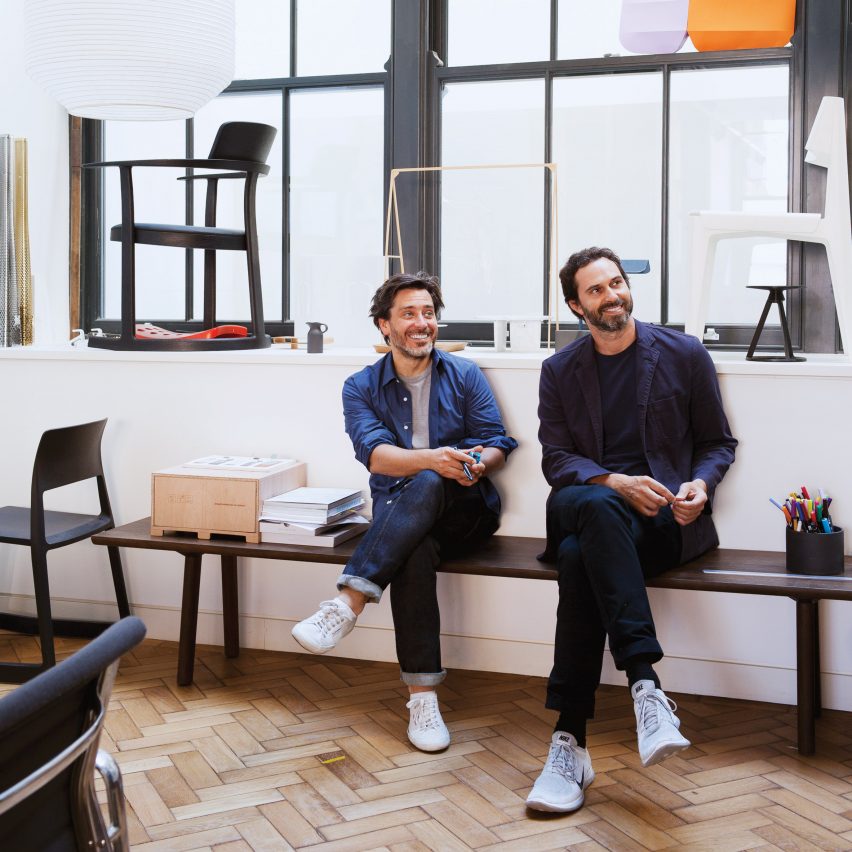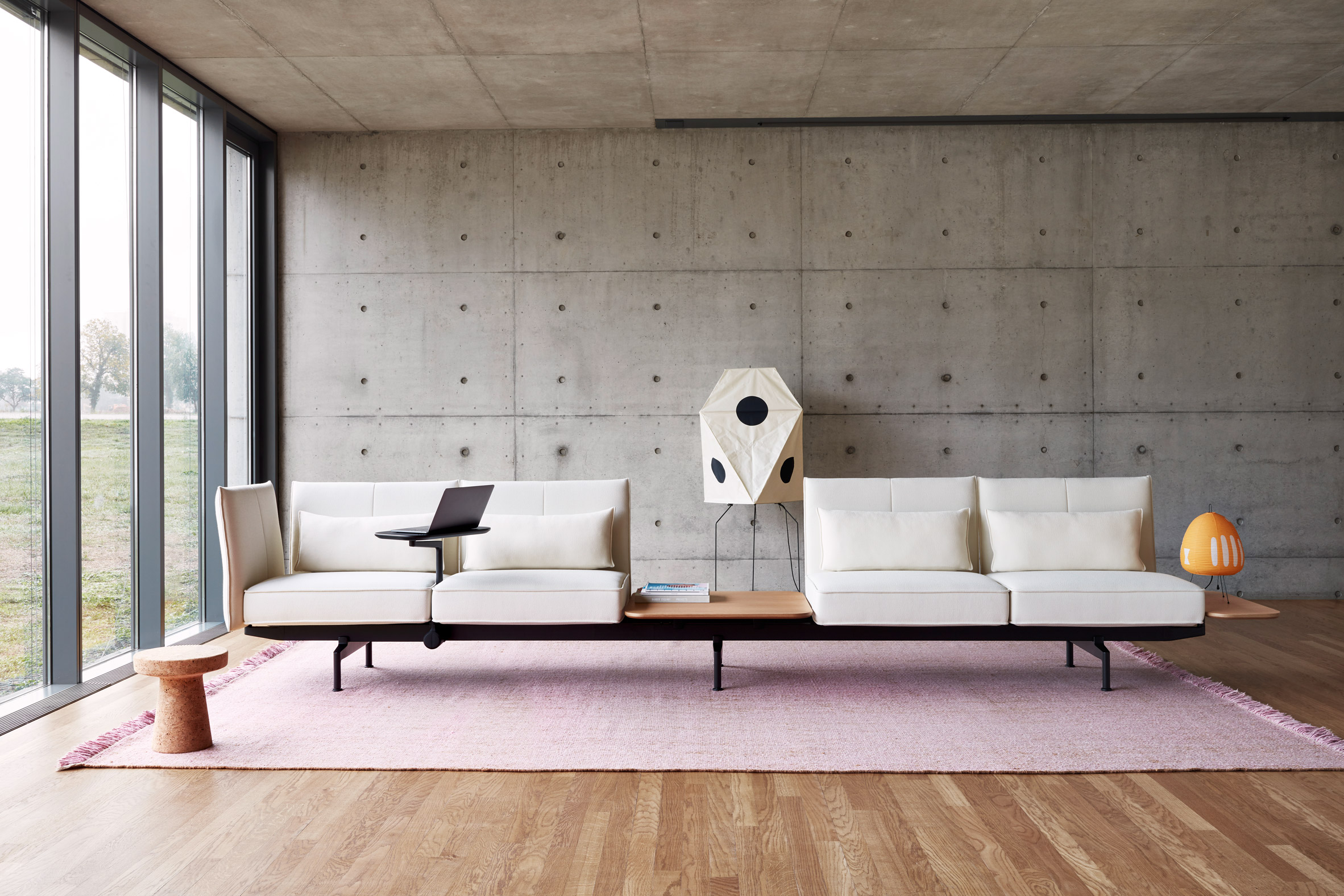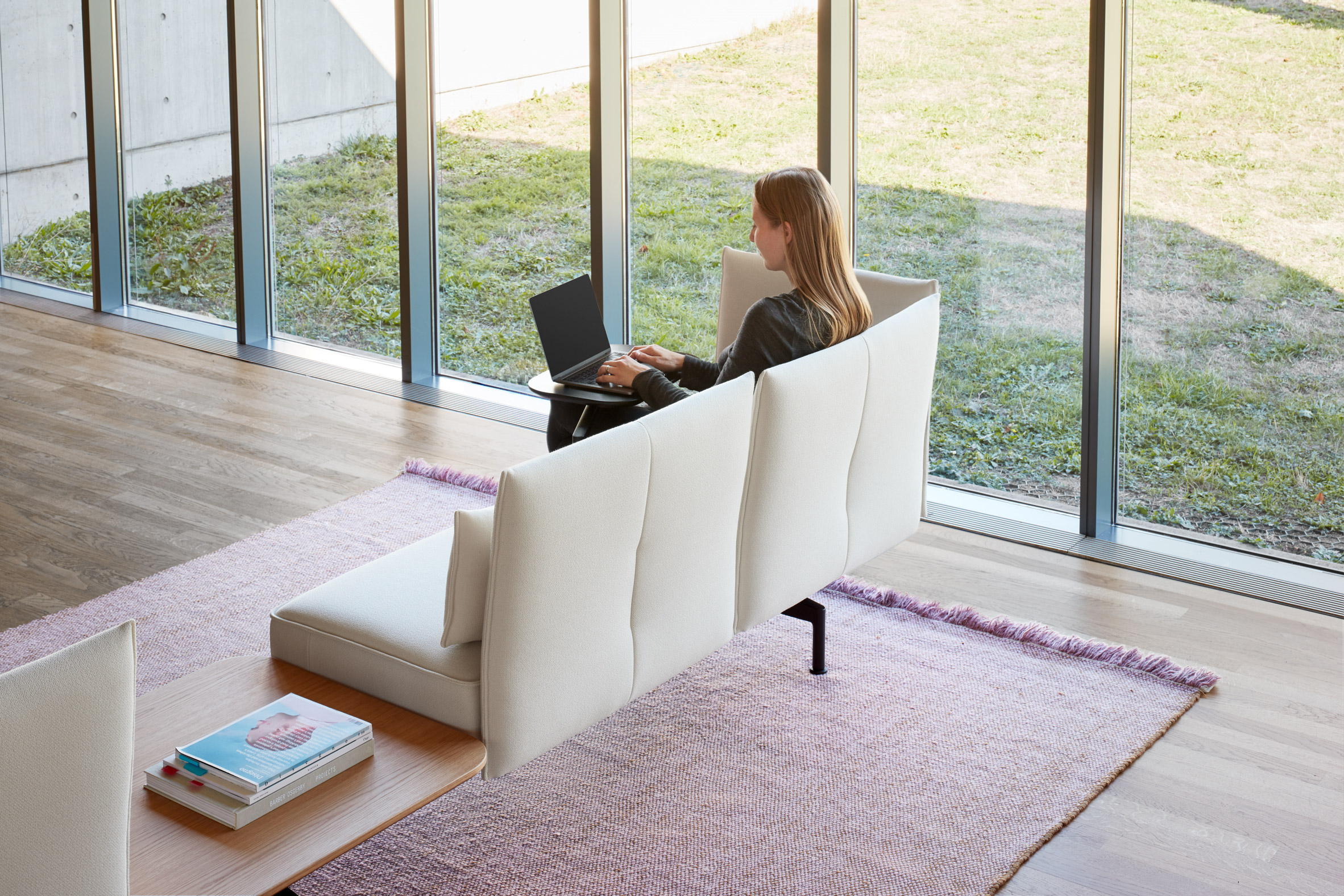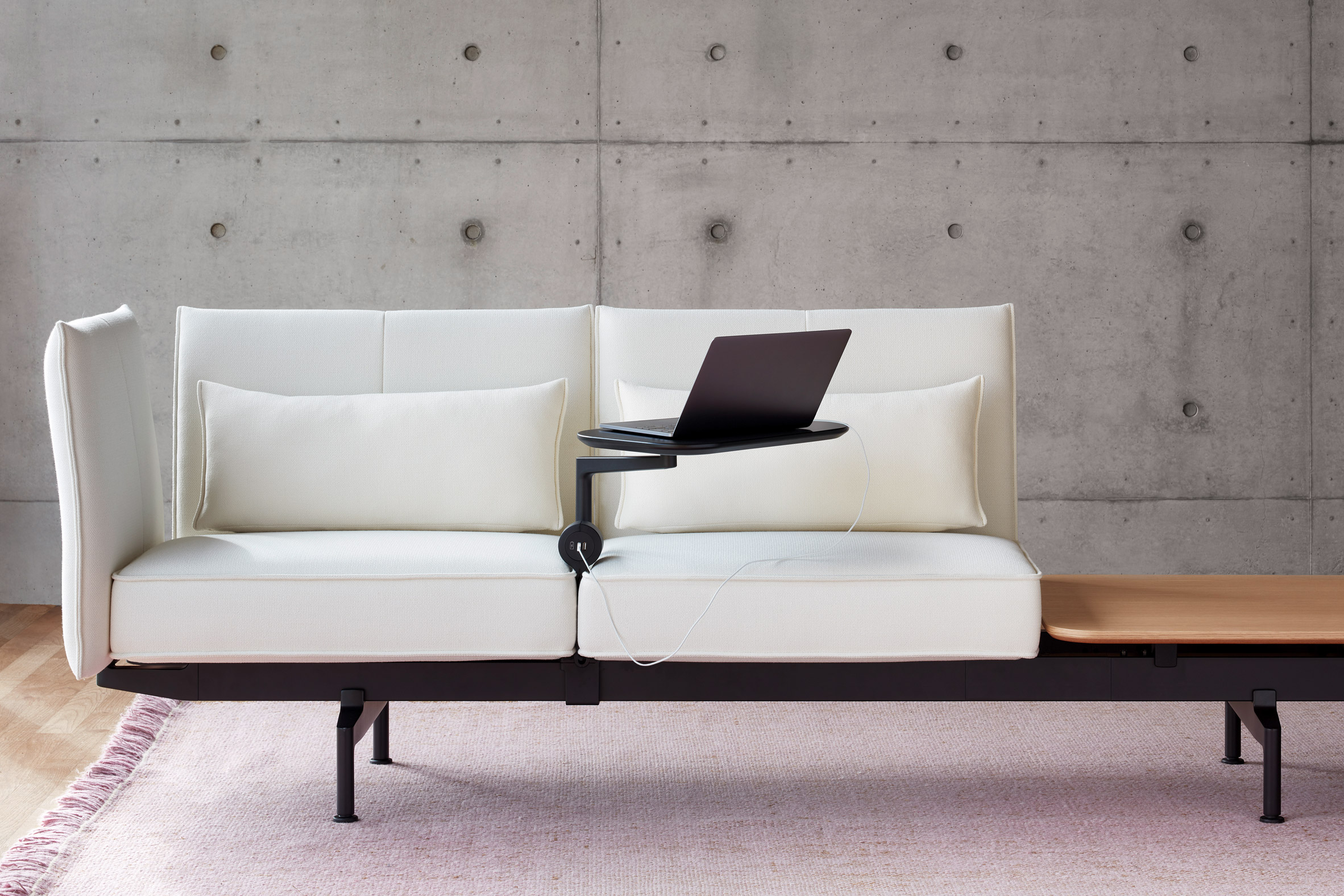
We no longer need desks, say designers Ed Barber and Jay Osgerby, because the office of the future is more of a meeting place than a work environment.
Speaking in a talk at the Vitra showroom in London, the Barber & Osgerby founders said that the office is still relevant, but the desk is not and designers need to be responding to this.
“The desk is a place that you’re invisibly chained to, where you’re producing widgets for the man,” said Osgerby. “It’s a remnant of the industrial revolution.”
“You don’t need to spend 20 grand a year to have a desk that has a photo of your dog on it anymore, but at the same time people still need to come together and have moments of interaction.”
People need “moments of intimacy and sociability”
Osgerby said that the office of the future is more a space of collaboration, so its furniture needs to be more casual.
“The office now and in the future will only be a place where people come together, a meeting place,” he said. “People now need to move around and sit down and come together, to have moments of intimacy and sociability.”
Barber added: “This is why we say that the desk is dead, and not the office is dead.”

The big advantage of the office, according to Barber, is that technology is unlikely get in the way of productivity.
“While we endeavour to use technology like Skype for group calls as much as possible, it’s disjointed and inevitably always fucks up,” said Barber. “So we end up travelling a lot to actually speak face to face to the people we need to talk to.”
“Things work very quickly and easily that way, whereas when there’s a layer of technology, there’s always a problem,” he added.
Companies favour hospitality areas over desk space
The talk took place to mark the UK launch of Soft Work, a modular seating system that the duo designed for Vitra, which also doubles as a work station.
First unveiled at the Orgatec 2018 office furniture fair, it is among a number of new products designed to suit to more flexible workplaces.
The pair were accompanied by Raphael Gielgen, head of research and trend scouting at Vitra, who explained that fewer companies are investing in the classic typology of the workplace.
According to Gielgen, firms are increasingly dedicating more floor space to hospitality areas in a bid to “stay relevant in our current climate” and “create value beyond the revenue”.
“You have to bring people together and create serendipitous moments, and this happens in hospitality areas as water-cooler moments,” he explained.

In Gielgen’s opinion, people are looking for more from their workplace than the traditional office can give them.
“A lot of people commute into London to spend five or six hours at a desk in front of a screen, and it makes no sense anymore,” said Gielgen.
“In this super fast world, people are really searching for rituals,” he continued. “Cooking or eating together is one of the strongest rituals in every culture, and you can embed this into the public space and the workspace.”
Freelance culture fuelled the trend
Osgerby said that the idea for Soft Work was born when he and Barber designed the interiors for the Ace Hotel Shoreditch, in east London. The duo designed a central table in the lobby for guests to use their laptops and smart devices at.
Within days of the hotel opening, the lobby became a communal space for freelance workers. Every seat was taken up by people on laptops and smartphones, most of whom were not hotel guests.
This trend for freelance working emerged in the aftermath of the global financial crash, when workers didn’t want to commit to long-term rental contracts. This, coupled with the rise of the smartphone, meant that people could effectively work from anywhere.
“But most people don’t want to be isolated the whole time, so that’s why they end up going to places like the Ace Hotel lobby, because they are looking for a community,” said Osgerby.
“So we thought, let’s design a piece of furniture that’s actually appropriate and ergonomic, which has a place you can plug your device in to charge, that has surfaces where you can rest your laptop. Something that is formal but also casual and flexible,” he continued.

Soft Work’s features include pivoting tables and power sockets located between the seat cushions, which enable diverse seating and working positions. Partition screens can also be used to divide zones and create privacy.
Barber and Osgerby founded their studio in 1996, and are famous for designs including the London 2012 Olympic Torch and the Tip Ton chair.
They are not the only designers aiming to transform the idea of traditional office furniture.
Jaime Hayon’s Plenum collection for Danish furniture brand Republic of Fritz Hansen is made up of a one, two and a three-seater sofa, to make people “feel at home” when working.
Similarly, designer Lucy Kurrein designed a modular sofa for Offecct that incorporates moveable table tops for laptops and hangers for storing coats to cater to modern working environments such as hotel lobbies.
The post Office of the future “will only be a place where people come together” say Barber and Osgerby appeared first on Dezeen.
